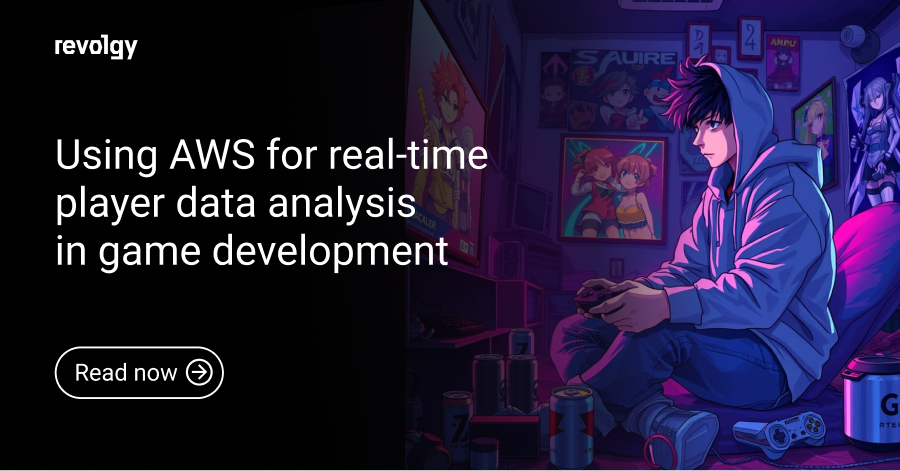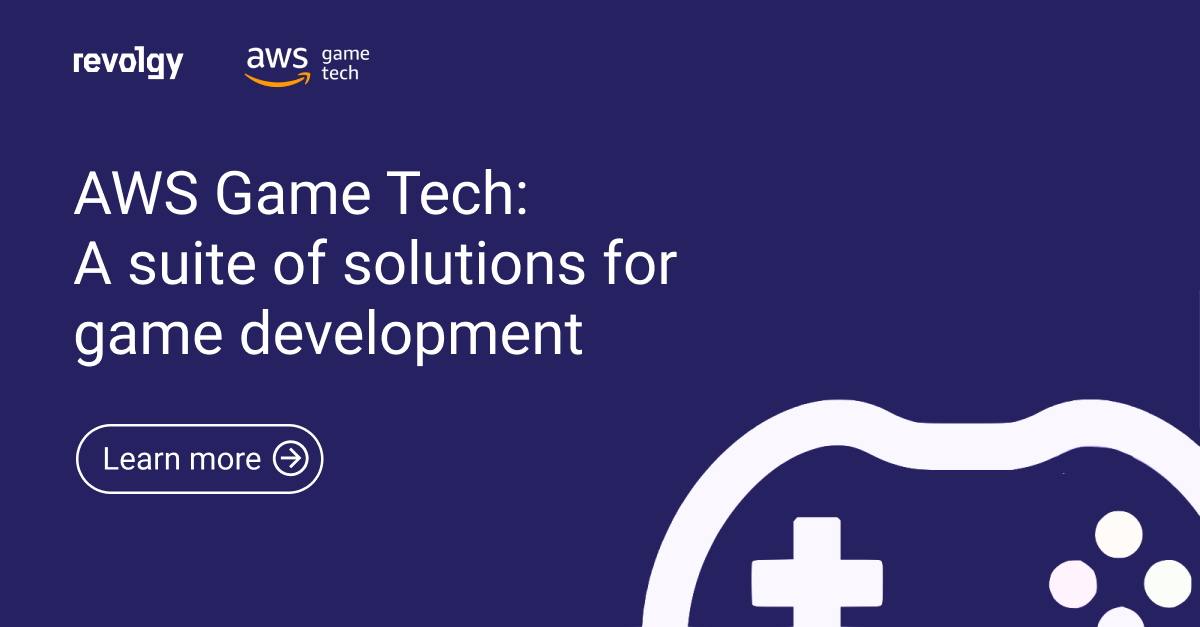AWS, Gaming
Top cybersecurity threats and solutions in the gaming industry
From stolen accounts to disruptive attacks, studios need robust security to protect their players and bring them a great gaming experience. This article explores key threats and strategies that will keep your game and players safe.
Common threats in gaming
Hackers and malicious actors come up all the time with new ways to exploit vulnerabilities and disrupt the gaming experience of your players. These are some of the most common threats:
Hacking and data theft
Gamers often have valuable virtual assets and in-game purchases linked to their accounts. Hackers can take advantage of vulnerabilities in servers and platforms and steal the data, which can be sold on the black market. In turn, players lose access to accounts and prized possessions, while studios face reputational damage and potential legal issues.
Deception tactics
Deceptive emails, websites, and in-game interactions can trick players into revealing login credentials or personal information. These tactics come in two main forms:
Phishing attacks
Deceptive emails and websites try to trick players into clicking harmful links or entering login details on fake login pages.
Social engineering
Attackers use psychological tricks to get players to share sensitive information. They often pretend to be trusted figures (like developers or support) and create fake threats to pressure players into acting fast. Common tactics include:
- Impersonation: Attackers pretend to be game developers, customer support, or other trusted figures to trick players into sharing passwords or clicking malicious links.
- Scare tactics: Phishing emails or messages may threaten to suspend or delete accounts to pressure players into sharing personal details.
DDoS attacks
Distributed Denial-of-Service (DDoS) attacks flood gaming servers with too much traffic, making them unusable for real players. These attacks can disrupt gameplay, hurt a studio’s reputation, and lead to revenue loss.
Video game cheating
These attacks don’t always go after player data, but they mess with the game itself, creating an uneven playing field. Cheating can cause just as much damage as other cyber threats, leading to financial losses and hurting the reputation of games, developers, studios, and brands.
- Unauthorized third-party software (Bots): These automated programs grant players unfair advantages, like auto-aim or wallhacks.
- Game hacks and exploits: Malicious code modifies the game client to give cheaters in-game advantages or bypass restrictions.
How to protect your players
Taking proactive steps can protect your players and keep your game environment secure. Here are some strategies your game development studio can use:
- Multi-Factor Authentication (MFA): This extra layer of security makes it much harder for attackers to steal player accounts, even if they obtain a password.
- Robust security practices: Implement industry-standard security practices like encryption of player data, regular vulnerability assessments, and prompt patching of security holes in your game and servers.
- Transparent communication: Be open with your players about security issues. Quickly acknowledge any breaches and explain the steps you’re taking to fix the problem and prevent it from happening again.
- Security awareness: It’s important to teach your players about security. Regularly share guides and articles about common cyber threats and scams. Focus on things like using strong passwords, avoiding suspicious links, and downloading only from trusted sources.
- Partner with a security expert: Security can be complicated. It’s a good idea to partner with experts like Revolgy to build strong security solutions for your game and infrastructure.
Using AWS to keep your game safe
AWS has plenty of services made just for the gaming world, helping studios stay protected from threats like data breaches, DDoS attacks, and unauthorized logins. Here’s how AWS can keep your game safe:
- Stopping DDoS attacks: AWS Shield protects your game from Distributed Denial-of-Service (DDoS) attacks, which can overwhelm your servers and kick players offline. This helps your game stay up and running even during big attacks.
- Keeping your data safe: AWS uses a tool called Amazon GuardDuty to watch for any suspicious activity or unauthorized access. This keeps your players’ personal info and in-game purchases safe from hackers.
- Securing player logins: With Amazon Cognito, it’s easy to manage player accounts securely, making sure only authorized users can access them.
- Handling traffic smoothly: AWS lets you scale your game to handle lots of players at once, with services like Amazon EC2 and GameLift. This ensures a smooth gaming experience, even during busy times.
Did you know that Revolgy is a partner of AWS? That means that you get all the perks of running on AWS while having the support of an expert team that handles everything for you. Focus on building your game, and we’ll take care of the rest. Contact us for a free consultation today.
Read next: Behind the scenes of your favorite games



